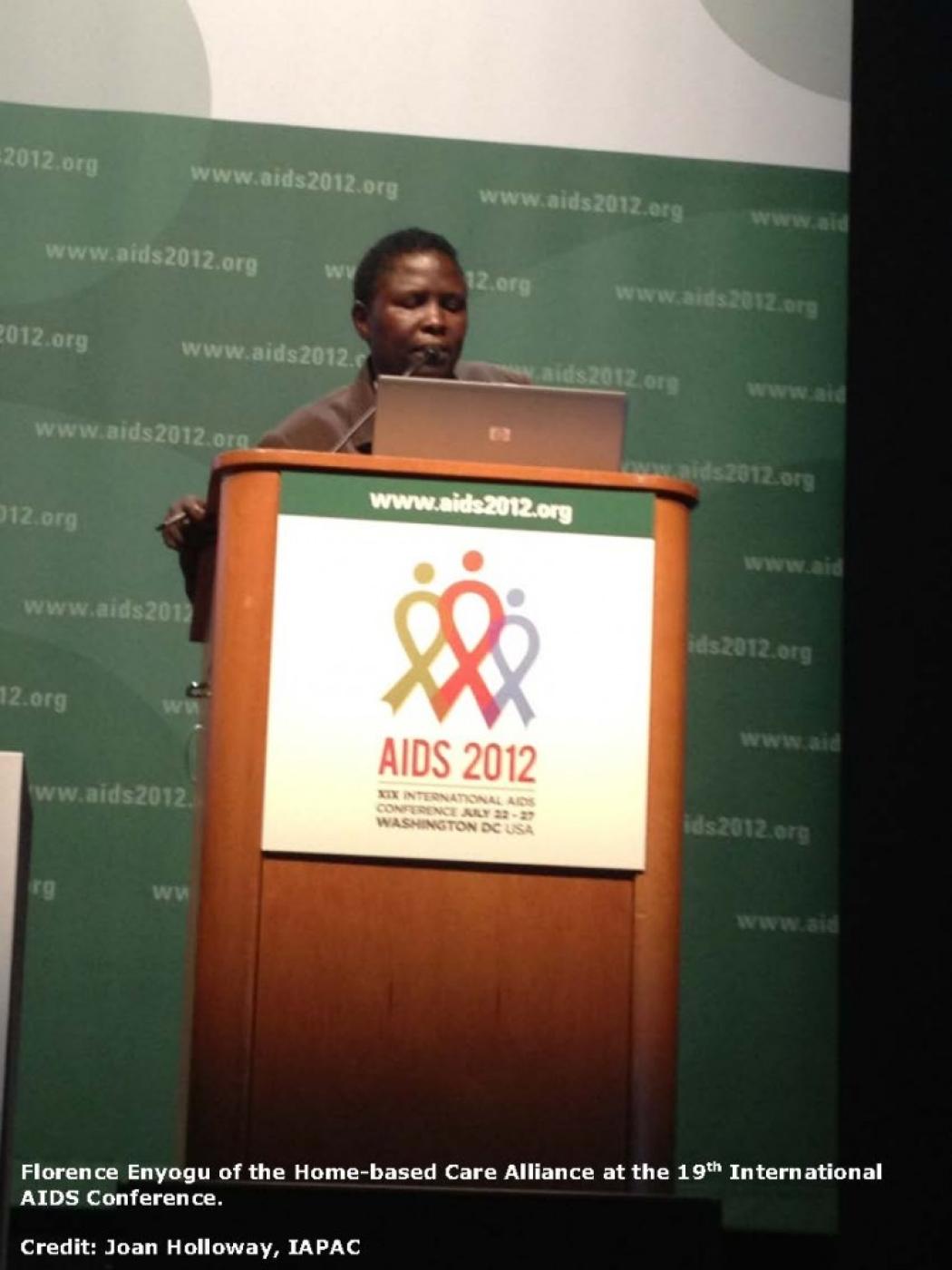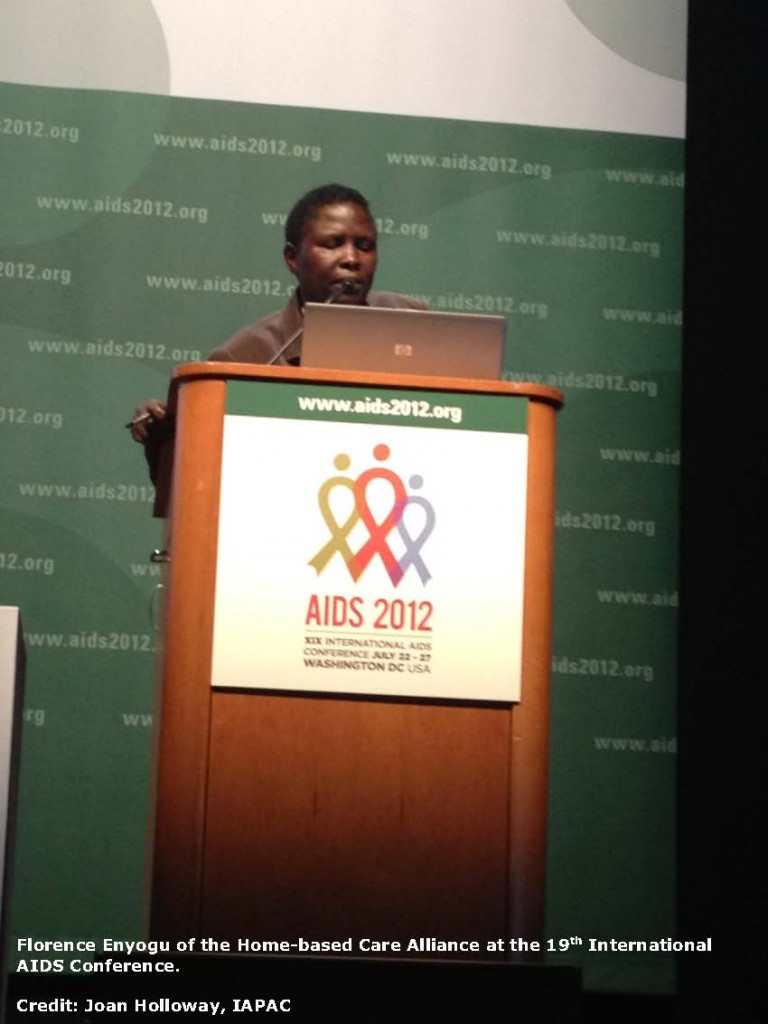The 19th International AIDS Conference

By: Joan Holloway, IAPAC
The 19th International AIDS Conference, held in Washington, DC last week, was attended by nearly 30,000 health care providers, policy makers, researchers, press and grassroots caregivers. The overwhelming message from the conference was one of hope that someday, in the not too distant future, we can see an end to AIDS. It is estimated that 8 million people globally are now receiving antiretroviral medications and support for these medications is increasingly being provided by low-and-middle income countries. However, it is also estimated that 34.2 million people around the world are currently infected with HIV. This fact alone emphasizes the need for additional financial support from international donors as well as the continuing need for caregivers to care for those who are sick and unable to access medications, to monitor and support adherence to medications, and to provide support to affected families.
There were several sessions at the conference that addressed health workforce needs, but the most exciting to me was a session on Tuesday, July 24 Healthcare Workforce: Who Cares and Where. Participants included US Global AIDS Coordinator, Ambassador Eric Goosby, Malawi SWAP Director Dr, Ann Phoya, Dr. Mubashar Sheik, Executive Director of the Global Health Workforce Alliance and Ms. Florence Enyogu, the Home-based Care Alliance. While the other presenters spoke of the extent of the global health workforce crisis, international and country efforts to address the crisis, Ms. Enyogu spoke about the caregivers. She represents a movement of home-based caregivers who have organized for self-representation at the national and international levels and for support for the essential services, care and resources they provide to their communities. The Alliance represents more than 30,000 caregivers in 11 African countries ( Benin, Cameroon, Ethiopia, Ghana, Kenya, Malawi, Nigeria, South Africa, Uganda, Zambia, Zimbabwe) who are advocating for recognition of the contributions of home-bases caregivers to care and support; reimbursement for their work; and financing and support for the Alliance.
Ms. Enyogu’s recommendations included: transforming the health care workforce by recruiting caregivers for higher level CHW roles; direct funding to the caregivers at the community level; and involving the caregivers and the Alliance as partners in transforming the health care workforce and not as beneficiaries of the process.
These are recommendations that the Frontline Health Workers Coalition can and should embrace.
Written by: Joan Holloway, IAPAC. IAPAC is a member of the Frontline Health Workers Coalition, a dynamic and influential coalition of 25+ NGOs working together to urge greater and more strategic U.S. investment in frontline health workers in the developing world as the most cost-effective way to save lives and foster a healthier, safer and more prosperous world.

